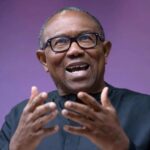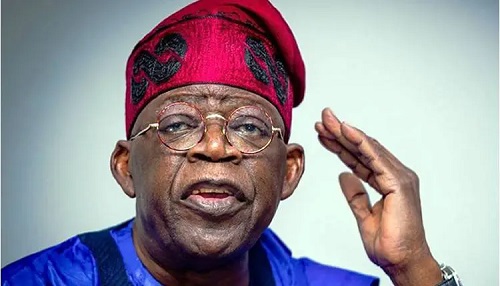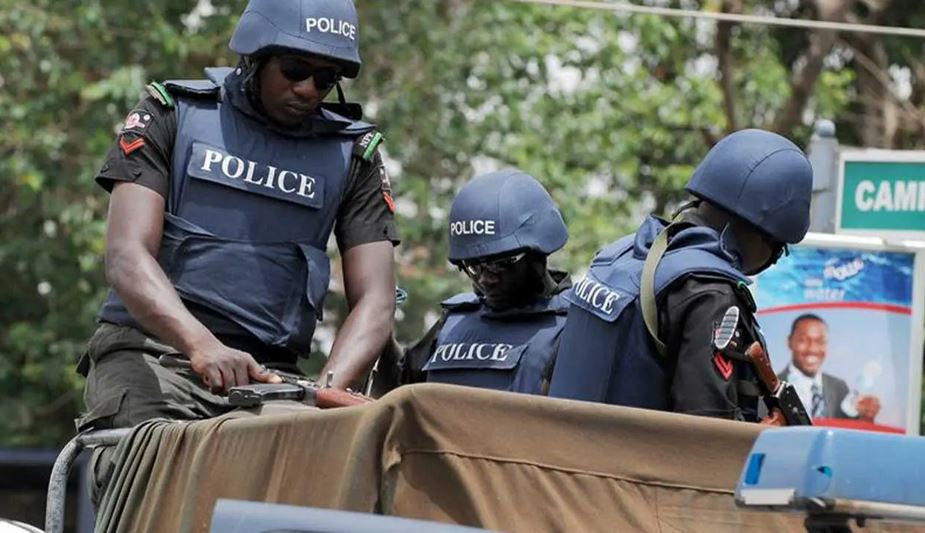President Bola Tinubu has identified those responsible for insecurity in the country.
According to Tinubu, the ongoing insecurity in Nigeria is being driven by “well-organized” non-state actors.
The president emphasized that a united effort from law enforcement agencies is essential to address this issue and called for the cessation of inter-agency rivalries.
Speaking at the inauguration of the Nigeria Police Force National Cyber Crime Centre in Abuja, Tinubu, represented by Dr. Bosun Tijani, the Minister of Communications, Innovation and Digital Economy, highlighted the complex nature of the security challenges facing the nation.
He remarked, “The security situation in the country is a complex blend of threats posed by well-organized non-state actors.
“Addressing it requires a concerted approach by all stakeholders within the security architecture. I, therefore, call for the elimination of inter-agency rivalries and urge law enforcement agencies to embrace a coordinated, collaborative approach.”
Tinubu reiterated his administration’s commitment to reforming the Nigerian Police Force, pledging investments in arms, equipment, and the recruitment and training of police personnel to improve their numbers, quality, and readiness.
Acknowledging the government’s determination to combat insecurity, Tinubu noted a significant increase in cybercrime threats.
He stated, “Our administration is steadfast in its fight against all forms of criminal activity. Cybercrime is an emerging and evolving threat. We are witnessing an increase in activities by cybercriminals, online fraudsters, and cyber terrorists who exploit the Internet for their destabilizing activities.”
He highlighted the challenge posed by rapid technological advancements, the COVID-19 pandemic, and the introduction of 5G technology, which have expanded the scope of cyber threats.
Since 2020, Nigeria has seen a surge in the use of social media to spread subversive messages and incite violence.
To address these challenges, the Federal Government has revised its national cybercrime strategy to mitigate these multifaceted threats. “Our objective is to usher Nigeria into a bright future driven by a prosperous cyberspace and digital economy,” Tinubu said.
He emphasized the importance of cybersecurity for the nation’s social security and economic development, positioning Nigeria as a credible destination for foreign investment in the digital sector.
Tinubu also urged collaboration between the new center and the Office of the National Security Adviser to ensure heightened scrutiny of online activities.
“I hope that this centre will complement the ONSA in the protection of our critical national infrastructures by enabling a greater level of scrutiny of the online activities of those who seek to cause damage to our national interests,” he added.
The Inspector General of Police, Kayode Egbetokun, noted that the center has made significant progress in addressing cybercrime-related incidents. “The center has been proactive in dealing with high-profile cybercrime infiltrations and attacks,” Egbetokun said.
He reported that many of these attacks targeted both government and non-governmental organizations, with numerous suspects arrested and prosecuted.
“Seventy percent of the stolen funds and assets have been recovered. As we embark on this new chapter for the Nigerian Police Force, I stress that cybersecurity is a shared responsibility requiring cooperation from all stakeholders.
“Together, we can build a resilient and secure cyberspace that enables our nation to thrive and prosper in the digital age,” Egbetokun concluded.



























